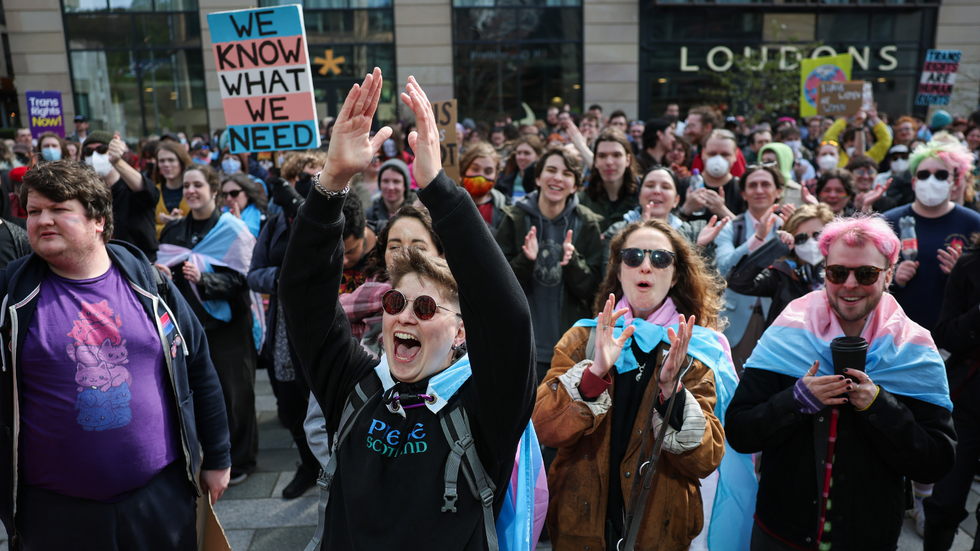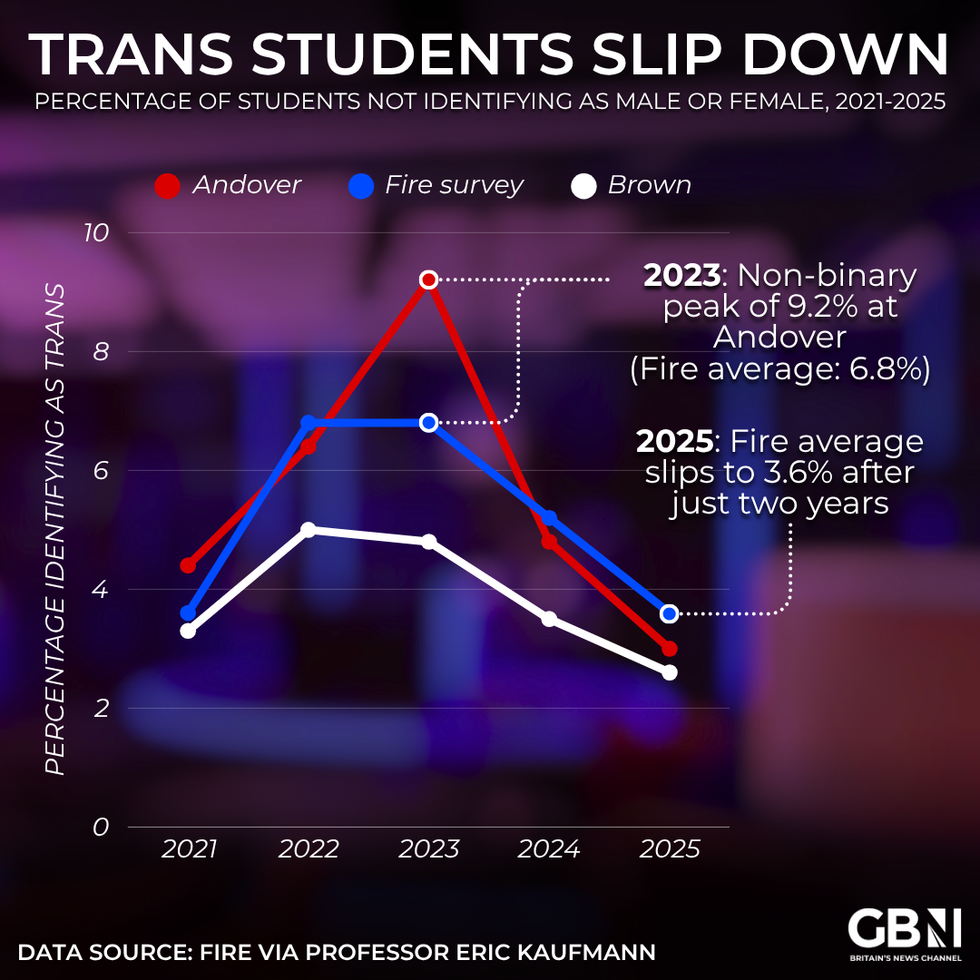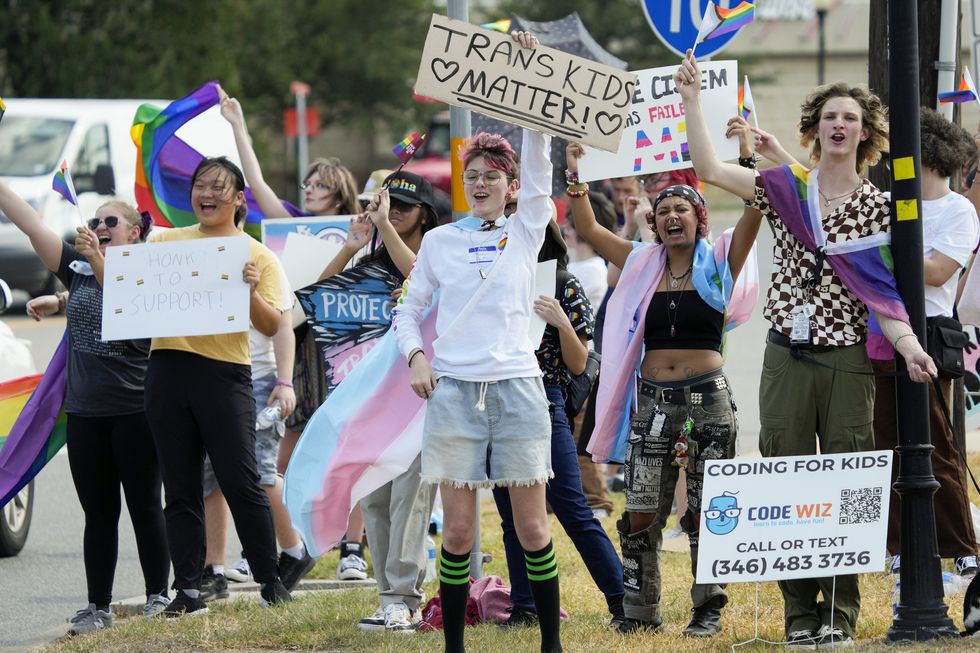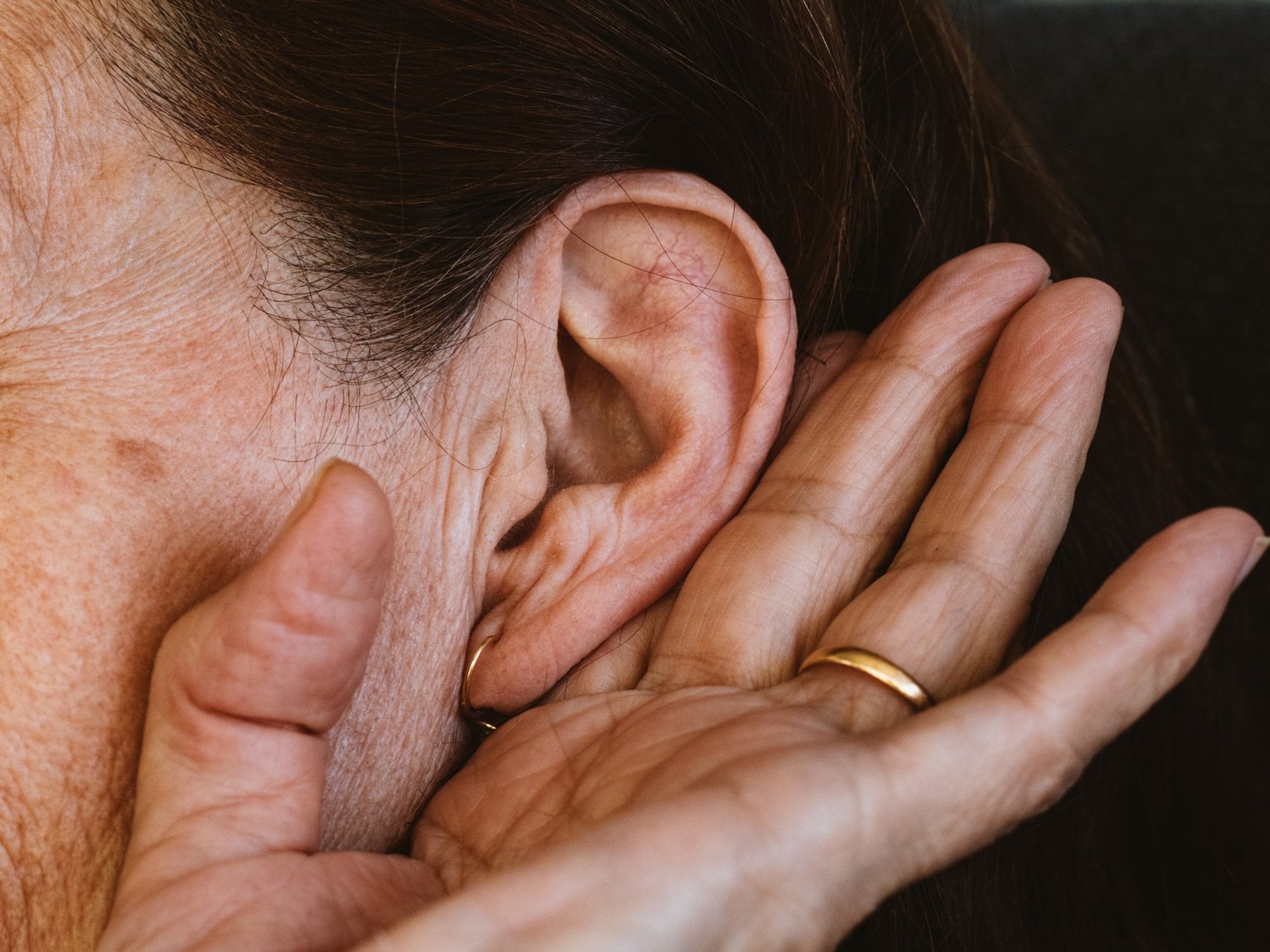Number of students who 'identify as transgender' halves in just two years

WATCH: Nana Akua tears into trans campaigner for 'dissecting language'
|GB NEWS
Leading professor Eric Kaufmann branded the decline 'a sign that fashions are changing'
Don't Miss
Most Read
Trending on GB News
The number of students identifying as transgender or non-binary at US universities has halved since 2022, a new study has found.
Students identifying as a gender "other than male of female" now sits at hust 3.6 per cent, according to the Foundation for Individual Rights and Expression (Fire).
The Fire survey, which polled more than 60,000 US undergraduates, found the figure was around 5.2 per cent just last year.
Surveys conducted in both 2022 and 2023 marked the number as 6.8 per cent - indicating the total of transgender students has halved in just two years.

The number of undergraduate students identifying as a different gender other than male of female now sits at 3.6 per cent
|GETTY
TRENDING
Stories
Videos
Your Say
The decline of students identifying as a different gender to male or female has been found to be particularly prevalent in elite American institutions.
At Boston's Andover Phillips Academy, 9.2 per cent of students identified as neither male or female in 2023, according to an internal survey.
But the figure for this year's student cohort has collapsed to just three per cent.
A similar pattern was also seen at Brown University, with the number plummeting from five per cent in 2022 and 2023 to just 2.6 per cent today.

Professor Eric Kaufmann, who analysed data from American universities and Fire, found that "when the trans and queer trends were at their peak, freshman were more likely to be nonconforming in their gender and sexuality than seniors".
Writing in Unherd, Prof Kaufmann said: "Now that BTQ (bisexual, trans, queer or questioning) identification is in decline, the reverse is true: younger students are less BTQ than older students in their colleges.
"This is a sign that fashions are changing."
However, he noted that there has not been a significant shift in the political ideologies of the students themselves since 2022 - despite the so-called "vibe shift" under Donald Trump.

Prof Kaufmann noted that there has not been a significant shift in the political ideologies of the students themselves since 2022
|GETTY
LGBT - READ THE LATEST:
- 'It's a huge mess!' Labour's digital ID slammed over fears that plans could lead to gender self-ID
- BBC 'pauses' trans diversity training after landmark Supreme Court ruling
- Scottish Government guidance finally confirms schools must adopt single sex toilets
- Legal action launched against pub which 'banned gay men for questioning LGBTQ+ orthodoxy'
Last year, a team of Dutch researchers from the University of Groningen found that the majority of children who question their gender eventually grow out of the feeling by the time they reach adulthood.
The long-term study found that 11 per cent children expressed discontent with their gender, but by the time the participants reached the age of 25, this crashed to just four per cent.
The study's authors wrote: "Gender non-contentedness, while being relatively common during early adolescence, in general decreases with age and appears to be associated with a poorer self-concept and mental health throughout development.
"The results of the current study might help adolescents to realize that it is normal to have some doubts about one’s identity and one’s gender identity during this age period and that this is also relatively common."
Prof Kaufmann suggested one factor to explain the decline may be down to the fall in the number of young Americans who report suffering from a mental illness.
He wrote: "My analysis indicates that changes in mental health over time, especially depression, made a significant difference to the trajectory of trans and queer identities over this period."
However, the professor noted that this drop in mental illness was present for all social groups, not just transgender and queer identifying individuals.
Prof Kaufmann added: "The fact both have declined sharply in just two years is a startling and unanticipated post-progressive development that the education and media establishments will be reluctant to acknowledge."
Our Standards: The GB News Editorial Charter
More From GB News










